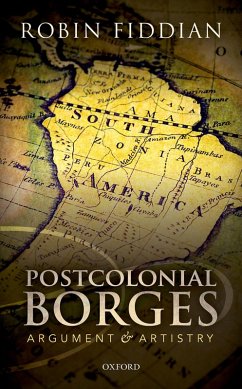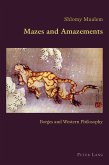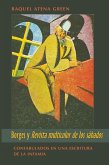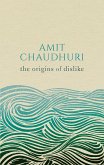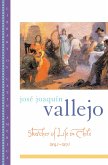Postcolonial Borges is the first systematic account of geo-political and postcolonial themes in a range of writings by Borges, from the poetry and essays of the 1920s, through the prose and poetry of the middle years (the 40s, 50s, and 60s), to the stories of El informe de Brodie and the poems of La cifra and other later collections. Robin Fiddian analyses the development of a postcolonial sensibility in works such as 'Mythical Founding of Buenos Aires', 'Tl?n, Uqbar, Orbis Tertius', 'Theme of the Traitor and the Hero', and 'Brodie's Report'. He examines Borges's treatment of national and regional identity, and of East-West relations, in several essays and poems, contained, for example, in Other Inquisitions and Seven Nights. The theoretical concepts of 'coloniality' and 'Occidentalism' shed new light on several works by Borges, who acquires a sharper political profile than previously acknowledged. Fiddian pays special attention to Oriental subjects in Borges's works of the 70s and 80s, where their treatment is bound up with a critique of Occidental values and assumptions. Classified by some commentators over the years as a precursor of post-colonialism, Borges in fact emerges as a prototype of the postcolonial intellectual exemplified by James Joyce, Aim? C?saire (for example), and Edward Said. From a regional perspective, his repertoire of geopolitical and historical concerns resonates with those of Leopoldo Zea, Enrique Dussel, Eduardo Galeano, and Joaqu?n Torres Garc?a , who illustrate different strands and kinds of Latin American post-colonialism(s) of the twentieth century. At the same time, manifest differences in respect of political and artistic temperament mark Borges out as a postcolonial intellectual and creative writer who is sui generis.
Dieser Download kann aus rechtlichen Gründen nur mit Rechnungsadresse in A, B, BG, CY, CZ, D, DK, EW, E, FIN, F, GR, HR, H, IRL, I, LT, L, LR, M, NL, PL, P, R, S, SLO, SK ausgeliefert werden.

